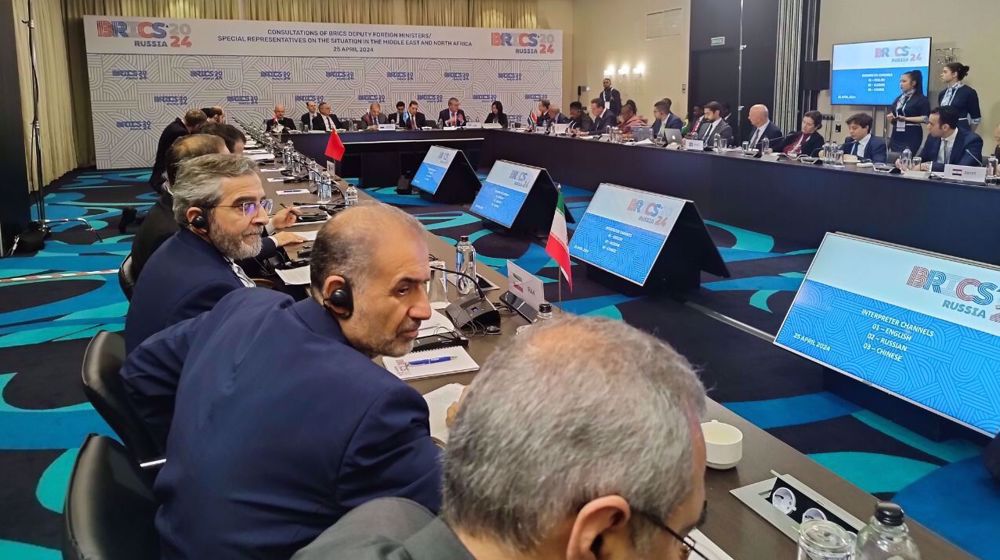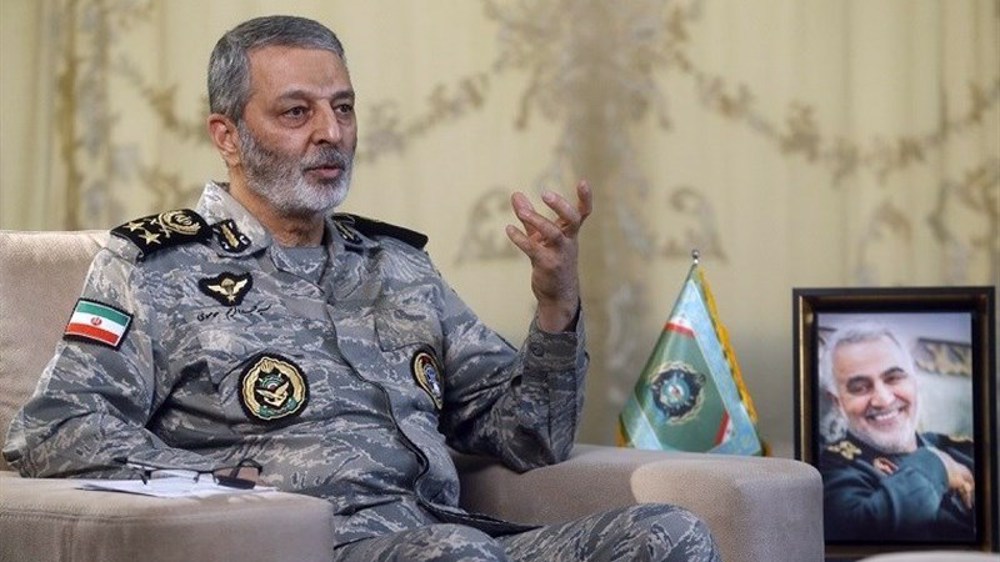Iran's missile program not open to negotiation: UN envoy
Iranian Deputy Ambassador to the United Nations Es’haq Al-e Habib says the country’s missile program is not open to negotiation and will continue with strength and according to the Islamic Republic’s national defense agenda.
Speaking at a UN committee on Monday, Al-e Habib added that Iran's missile program was only meant for defense and deterrence and accuracy of its missiles was proportionate to threats faced by the country.
“Iran’s missile program has been designed to meet the country’s defensive and security needs and it is impossible to make any comment about it without taking our security environment into consideration,” he said.
He pointed to executed Iraqi dictator Saddam Hussein’s imposed war against Iran in the 1980s and said this experience taught Tehran that it must rely on its national potentialities in order to guarantee its independence and security and that it should not hesitate about developing the necessary potentialities to meet its needs in defense and security sectors.
Further in his address, the Iranian diplomat pointed to certain claims that the country’s ballistic missile tests were in violation of UN Security Council Resolution 2231 and noted that the resolution called on Iran not to carry out any activity related to ballistic missiles capable of carrying nuclear weapons.
“Iran has always emphasized that none of its ballistic missiles have been designed to carry nuclear weapons,” Al-e Habib pointed out.
Resolution 2231 was adopted on July 20, 2015 to endorse the historic nuclear agreement, known as the Joint Comprehensive Plan of Action (JCPOA), reached between Iran and the P5+1 group of countries in the same year.
Iran and the five permanent members of the United Nations Security Council – the United States, France, Britain, Russia and China – plus Germany signed the nuclear agreement on July 14, 2015 and started implementing it on January 16, 2016.
Under the JCPOA, Iran undertook to put limitations on its nuclear program in exchange for the removal of nuclear-related sanctions imposed against Tehran.
US President Donald Trump on October 13 refused to formally certify that Iran was complying with the 2015 nuclear deal and warned that he might ultimately terminate the agreement.
While Trump did not pull Washington out of the nuclear deal, he gave the US Congress 60 days to decide whether to reimpose economic sanctions against Tehran that were lifted under the pact. Reimposing sanctions would put the US at odds with other signatories to the accord and the European Union.
Trump also said his goal was to ensure that Iran would never obtain a nuclear weapon, adding, "We will not continue down a path whose predictable conclusion is more violence, more terror and the very real threat of Iran’s nuclear breakout."
Elsewhere in his remarks, the Iranian diplomat stated that military expenses of the Middle East countries had increased by 19 percent from 2007 to 2016, adding, “During the same period, Iran’s military expenses increased only by 7.3 percent.”
VIDEO | Leader meets workers on Labor Week
French police called in to break up US-style pro-Palestinian student demo
VIDEO | US continues starving Syrians, stealing their resources
Yemeni forces strike Israeli ship, Port of Eilat in solidarity with Gaza
Columbia, Yale students bent on ending US support for Israeli genocide
VIDEO | Genocide in Gaza
Iran calls on BRICS to play role in stopping Israeli crimes
President Raeisi’s historic visit opens new chapter in Iran-Pakistan ties










 This makes it easy to access the Press TV website
This makes it easy to access the Press TV website